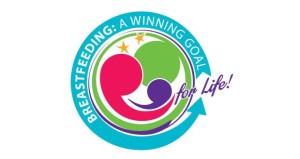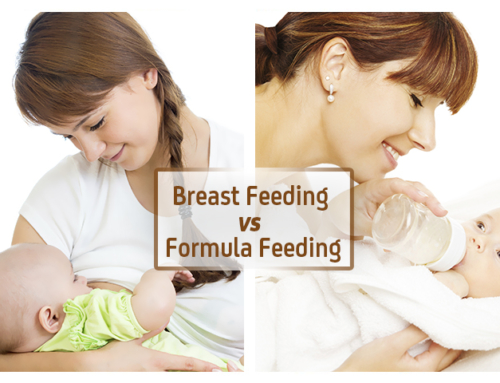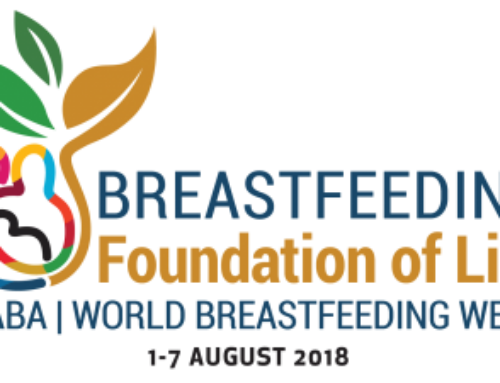World Breastfeeding Week has ended and it’s dredged up a lot of emotions for a lot of people, not all positive. Under the surface bubbles the anger from those who wonder, “Why can’t it be ‘just feed your baby’?” In short: Why do we need this discussion about breastfeeding at all? Why do we need to discuss the science, the merits, the health factors, and all those things that seem to get people’s backs up at their mere mention? Let me be clear that I don’t believe in the individual shaming of parents. However, what I often see labeled as “shaming” or “judgment” is far from anything that would qualify as such in a third party’s mind. People sharing their own stories, people sharing scientific articles, people talking about their own choices – all of these things have been deemed “bad” and “wrong” by others and yet none of them pertain to that individual’s own circumstance or choice. That said, we still need this discussion. We can’t just say “Feed your baby” and be done with it, and here’s why…
There are public health policy implications.
Unfortunately in our science-illiterate society, many people struggle with scientific writing because they read it as causal and absolute when in fact it is rarely the first and never the second. When it comes to breastfeeding there is a wealth of research that finds not breastfeeding associated with negative health outcomes. Those against the idea of causality assume there are third variables (like SES) influencing both breastfeeding and health; however, there are plenty of studies that speak strongly in favour of at least some level of causality even though there are moderating factors. Yet only through open dialogue do we give parents the ability to look into the role of breast milk or formula in a child’s development and decide the risks and benefits of each feeding type as it pertains to their situation.
The bigger problem, as I see it, is people’s belief that science speaks in absolutes. I hear it regularly that, for example, one mom used formula and her children are healthy therefore there’s nothing to the science that has found formula linked with greater instances of certain diseases. Let me say it very clearly here: Science does not speak in absolutes. Science speaks in terms of risk ratios or odds ratios. What the research on breastfeeding (when looked at as a whole) tells us is what is more or less likely to happen and what actually happens will be influenced by many additional factors, but breastfeeding remains one of those factors.
When we look at the role of breastfeeding in public health discussions we’re inherently looking at the bigger picture and therefore there are reasons we need to keep talking about and encouraging it, even if it doesn’t speak to each individual family. The effects of an increase in formula use on the society as a whole are noticeable even if they aren’t for your specific family. What families need to understand is that their own circumstances will most definitely influence how much weight they should put on the science and the public messages that are being pushed while understanding the bigger picture and why these messages are there in the first place (hint: it’s about the masses, not you individually). (If we look at it globally instead of even just in a Western context this becomes even more important.)
It may be one of the only ways to see other changes that we want to see.
I don’t know many people – lactivists, formula feeding advocates, mothers, fathers, etc. – who don’t feel that our society needs a bit of change in becoming family-friendly. This is particularly amplified in the United States where maternity leave is pretty much non-existent and companies fight changes that would implement more family-friendly policies. Indeed, many people who call for an end to any discussion of how we feed our babies speak of wanting to work together for better maternity leave, maternal support for things like post-partum depression, and policies for working mothers, with the assumption that we can leave breastfeeding out of the discussion of these things.
No one is saying we shouldn’t fight for these things – quite the opposite, as many lactivists are some of the most vocal about the changes that need to happen in these areas because they are so intricately tied to breastfeeding success. Herein is part of the problem: To discuss these changes is to discuss breastfeeding and in that discussion is the idea that there is a detriment to not breastfeeding at a societal level.
As nice as it is to say that we should have the choices to do what we want, work where we want with all the benefits we want, it simply isn’t realistic in the current American society where businesses are given very free reign. The US government, so quick to jump in to family situations, seems very reluctant to step in to change anything that affects businesses. The wishes of a given employee – no matter how reasonable it is from a family point of view – aren’t something that can or possibly even should be legislated. Some companies will have views and policies that are more in line with what we would say are “family friendly” policies, but not everyone can work there and thus we need some level of forced change for the companies that don’t want to support family-friendly initiatives.
This is where discourse on breastfeeding enters the fray. For example, maternity leave policies will be influenced by data on why one option (e.g., longer, paid mat leave) is better than another (e.g., six weeks unpaid). Although we can talk about the myriad benefits to parent-child bonding, they are, from a financial point of view, rather abstract and hard to calculate. We don’t have the data to support an economic argument which is what (sadly) government seems to look for. We do, however, have a financial argument in the form of breastfeeding, both for moms and children. If we try to claim that there are no differences between the use of formula and the use of breast milk, then we lose one of the most valuable arguments we have to support the policies we all want to see in place. In short, we give the companies the right to tell us it’s all in our “choices”, that the government has no vested interest in seeing change.
In another example, support and discussion of post-partum depression (PPD) is also an area where changes are needed. One problem with this is that one of the variables with the biggest protective effects on PPD is breastfeeding, so if we want to talk about resources to help women, we again have to talk about breastfeeding and finding ways to help women reach their breastfeeding goals or even increase breastfeeding rates in addition to providing other forms of support. (Whether PPD is a cause of not breastfeeding or alleviates any symptoms is unknown, likely it has differing effects depending on the woman and her situation and her previous mental health, with it having no effect for some women.) In almost any discussion of maternal health and maternal care, breastfeeding is integral and thus we have to keep talking about breastfeeding and breastfeeding advocacy.
It improves formula.
This is the one that I think many people forget about and it’s because the debate in recent times has been phrased, wrongly, as formula-feeding mothers versus breastfeeding mothers instead of what it is: the merits of formula versus breast milk. It’s a nuanced distinction but a very important one. Let me backtrack for a minute though and say that I’m sure there are people who negatively judge others for their use of formula, just as there are people who negatively judge others for breastfeeding, especially beyond a certain age (because who doesn’t enjoy being told they’re sexually abusing their child by nursing a toddler?). Screw ‘em, honestly. This is where the “No one can make you feel guilty” comes into play because it’s true: If you feel guilt, you feel it for another reason, not because some asshole has decided to take a dig at your parenting. (Importantly, whatever the reason for guilt, it is not necessarily that you regret your choice or should have done anything differently. It can be as simple as having baggage leftover from family that is screaming in your head or your perception of your situation or any number of things. Only you can work out what is causing you the discomfort though and then come to terms with it or change things to alleviate the guilt. Guilt is actually important.)
Returning to the point, most of the discourse I’ve read has centered on the two specific items, breast milk and formula, with judgments on the merits of each but no value judgment on the parents who use them. To this end we come to one conclusion: Formula is not breast milk. It simply isn’t. It also isn’t “equal” to breast milk in what it provides an infant. Now, you can be as offended as you like at this but there just isn’t the evidence to suggest anything other than this. The thing is, though, is that formula can be good enough and given a certain person’s situation, the difference may be negligible to their outcome, but it’s still not breast milk.
For formula companies, replicating breast milk is the gold standard, the thing they aspire to. It’s why as soon as we learn something new about what breast milk is comprised of (because we really don’t know everything, not even close), these companies find ways to add it to their formula. They know that they need to get as close as possible because their product isn’t the “ideal” or “biologically normal” food for infants. If people just accepted the two as equal, stopped talking about the health differences, I honestly believe the companies would simply accept the status quo and quit putting millions of dollars into research and development for better products. (The fact that the companies even put this kind of money into trying to replicate breast milk should be a clear sign that formula offers less than breast milk, but at least they are continuing to improve what they offer.)
It supports moms.
I know this is supposed to be your big thing: Breastfeeding advocacy only supports some moms and not all and if we just did away with all this breastfeeding stuff we could support everyone. Only not. Although there are definitely women who went into this parenting thing knowing they were going to exclusively formula feed, that’s not the story for many (if not the majority of) mothers who use formula. Sit down and you’ll hear many stories of the obstacles faced, the barriers put up, the hurt feelings, the sense of disappointment, and so much more.
In addition to highlighting the health implications associated with infant feeding (especially at a population level), breastfeeding advocacy is what highlights the problems women face in reaching the goals they are setting for themselves. My definition of support is to listen and empathize with their stories, without telling them what they should or shouldn’t feel, help them work through that, and then try and make sure other women don’t have to feel the same way. If we put an end to these discussions, we’re telling women their feelings are wrong and don’t matter – even if we think they don’t need to feel a certain way – and we’re avoiding discussions of the barriers that are facing many women. All these “support” things often come up when we discuss infant feeding and to ignore this does no woman any good.
Perhaps what the debate highlights is not the need to end breastfeeding discourse and advocacy, but rather to open up new discourse for moms who are formula feeding. Despite being the majority, many clearly feel unheard, but luckily for all of us, the two aren’t mutually exclusive. We can continue to talk about breastfeeding and advocate for it while also having channels for those who feel guilt, sadness, or loss over a failed breastfeeding relationship and having channels for those who are exploring issues to do with formula feeding like types of bottles, ethics of formula companies and who to buy from, what reactions babies have had to different brands, the role of donor milk as a substitute for formula, and more. None of these things have to shut down discussion of the other.
I know some people would bring up the WHO code and how it does shut down discussion or support for formula feeding families, but let me be clear: It does not. I am working on a piece dealing with this exact issue so I won’t go into it all here, but briefly let me make it clear that the WHO code does not deal with support networks or the sharing of information by medical professionals or other parents, it deals with marketing. Anyone who thinks that a company is the one offering “support” for formula feeding moms is, quite frankly, misguided. The same company trying to make a profit off you simply cannot offer true support in terms of information, availability of choices, and discussion of what is best for your family, but loads of other people can and should.
***
Breastfeeding advocacy, breastfeeding stories, breastfeeding science… in short, breastfeeding discourse is needed. From the public health perspective to the personal stories of women trying to do something they want, these discussions and articles and events like World Breastfeeding Week need to happen. They need to continue. If this discourse doesn’t apply to you, ignore it. If you’re angry you don’t have the same type of discourse, start it. Just please don’t try to shut down discussions that help women each and every day while they are trying to do something both for them and their baby and we won’t shut down your discussions of the same thing too.
***
If you are in need of individualized parenting help, I offer services via email, Skype, and phone on a variety of parenting topics. You can find out more here.







Interesting point about framing the maternity leave debate in terms of financial advantages of breastfeeding. I can see the benefit of that from a pragmatic point of view, but it’s also true that any argument for maternity leave that’s framed primarily around breastfeeding is going to leave adoptive parents out in the cold, and that’s not a good thing. It also means we have to be working towards *maternity* leave specifically, rather than a situation where parents could choose which parent took the leave while the child was young, or whether they split it between them (which I vaguely remember reading is the case in Sweden or some such – wouldn’t that be a wonderful situation?)
Surely even financial and pragmatic arguments shouldn’t have to depend on the breastfeeding angle? I mean, don’t we have a lot of evidence that putting children into daycare for too much time at too early a stage can adversely affect their development in ways that are also going to work out as rather expensive for society in the literal as well as the metaphorical sense?
No one is saying that the ONLY argument is breastfeeding related, but that it will and should play a role in that argument. Canada too has a split system for part of the leave (35 weeks of it; 15 are exclusive to mom) but some of the arguments when first developed are to do with health care costs of giving mothers enough time to breastfeed. Re the daycare – unfortunately we don’t because we don’t have a number or firm link on adult behaviour that’s costly. We know it’s associated with problems in childhood, but how that plays out is still left up to debate. All in all, we need ALL the arguments we can make and it shouldn’t rely JUST on breastfeeding, but that’s going to be one of the arguments that has real economic impact and already has a government mandate behind it.
Here are the topics I would like to start discourse on, and most of these centre around the education of medical professionals regarding breastfeeding topics…
1) When a woman is receiving her first advice from the nurse lactation expert (sorry I don’t know their official names), the nurse should never say that it doesn’t matter how well you eat when you breastfeed and that the breast milk somehow just takes what it needs from your body, and that even in famine, women can still provide healthy milk to their infants and toddlers. That’s what I was told. And that is not true. Specifically, I think the statistic was that half of infants who are breastfed beyond six months are anemic and that their likelihood of developing anemia increases 5% every month they are breastfed. Also, women need to increase their b12 intake, and calcium. When my toddler was two, I discovered I was anemic, and since I was breastfeeding, that may or may not have explained her developmental problems. I think that long-term breastfeeding mothers should be tested for low iron and b12, and this should not be a test moms have to know about and ask for. Doctors should bring it up. I don’t think I need the equivalent of a medical degree to safely breastfeed my child. Ordering the correct tests is the doctor’s job.
2) Doctors should never assume that a woman has stopped breastfeeding past six months like everyone else. For example, I became pregnant at age 37 while still breastfeeding. The doctor never brought up the issue of safely breastfeeding while pregnant. Finally when I was five months pregnant, my obstetrical nurse finally realized I was breastfeeding while pregnant and finally told me that it is not necessarily safe to breastfeed while pregnant. There are also other situations where assuming a mom is no longer breastfeeding would be dangerous.
3) If a mom is breastfeeding, pregnant, and 37 years old, her thyroid should be checked. This information is just not out there for doctors.
Katy, it sounds like you have received a lot of misinformation! 1) Anemia in a full term, non-disabled breast fed child is rare, unless the cord was clamped quickly and/or there are food intolerances – and iron in mom’s diet is not going to pass through to breast milk.
http://kellymom.com/nutrition/vitamins/iron/
http://www.askdrsears.com/topics/feeding-eating/family-nutrition/iron/8-ways-prevent-anemia
2. ) It’s safe to breastfeed through pregnancy in a normal, low-risk pregnancy with no history of miscarriage or pre-term labor
http://kellymom.com/ages/tandem/official-tandem-bf-faq/
http://www.lalecheleague.org/nb/nbjanfeb08p32.html
http://www.askdrsears.com/topics/feeding-eating/breastfeeding/special-situations/breastfeeding-while-pregnant
3). Thyroid issues can happen at any age, but do happen more frequently as you age.
http://kellymom.com/health/mom-health/thyroid-faq/#prevent
[…] It’s not “Just feed your baby”: Why breastfeeding discourse matters […]
Well said. If only advantaged parents realized that formula is always imperfect, with unknowable consequences for any individual, the discussion would change. Check out infantfeedingmatters.com/forever-imperfect-formula/ and http://infantfeedingmatters.com/1152-2/